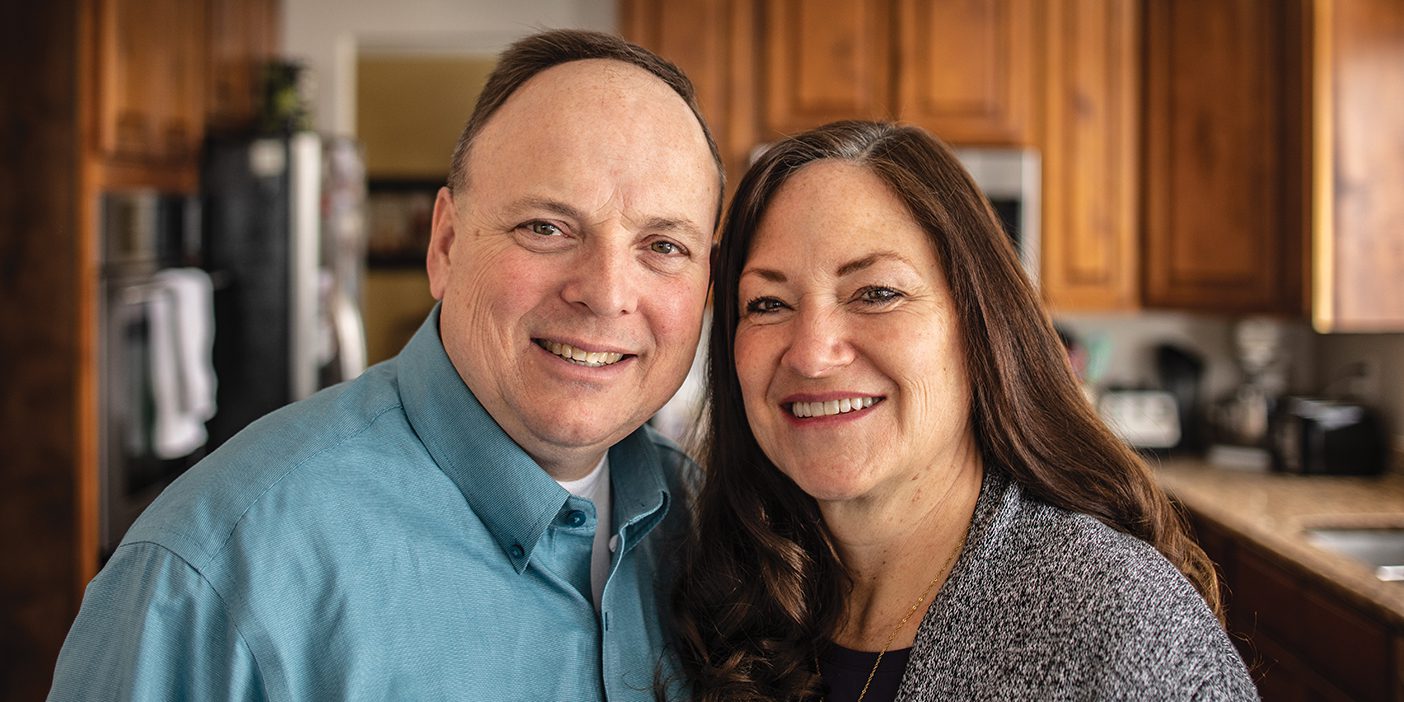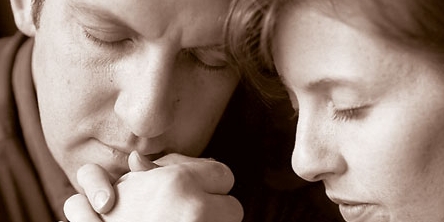
Mark D. Ogletree (BA ’87) first got a taste for helping people heal during his mission. “The mission president . . . would send me to missionaries who were struggling and just say, ‘See what you can do,’ and I’d go out and [find ways to help],” recalls the BYU associate professor of Church history and doctrine. “I realized, I kind of like this.”
Today, as a licensed professional counselor, father of 8, and grandfather of 14, Ogletree knows a thing or two about helping families work through challenges and improve parenting strategies. And now, thanks to a series of recent presentations by Ogletree, so do members of BYU Alumni chapters in Omaha, Nebraska; Fresno, California; and El Paso, Texas. They invited Ogletree to come and share practical, gospel-centered advice for families. Here are highlights:
Seeing Self-Destructing Selfishness
Pride is a form of selfishness that destroys marriage and family relationships. Pride inhibits us from changing or improving or thinking that we are wrong. President Dieter F. Uchtdorf explained, “Pride is a deadly cancer. It is a gateway sin that leads to a host of other human weaknesses. In fact, it could be said that every other sin is, in essence, a manifestation of pride.”¹
Any marriage will suffer if there is a high degree of selfishness present. President Gordon B. Hinckley stated that “it is selfishness which is the cause of most of our misery.”² Unfortunately, not only does selfishness destroy our own souls, it also erodes the quality of life for those who live with us.
Successful marriages require a high degree of selflessness. To be happily married, men and women should strive to identify their spouse’s needs and meet them. President Spencer W. Kimball taught, “If each spouse is forever seeking the interests, comforts, and happiness of the other, [then] love . . . will grow.”³
Manners Matter
There is no place in the home for name-calling, belittling, angry out-bursts, harsh judgment, or constant criticism. Our homes should be a refuge—a safe place where we can find love, peace, acceptance, and a listening ear. In our homes, we should follow the admonition from Alma 7:23, to “be humble, . . . submissive and gentle; easy to be entreated; full of patience and long-suffering; . . . temperate in all things, [and] diligent in keeping the commandments of God.”
Charity and Change
One of the great discoveries in life is coming to understand that, really, the only person we have control over is ourselves. To begin a transformation in any culture or organization, the change must begin with ourselves. President Dieter F. Utchdorf said, “My beloved friends, a first step on this wondrous and fulfilling path of true discipleship starts with our asking the simple question: ‘Lord, is it I?’”⁴
Stop Over-Protecting Children
Says Hara Marano in her book A Nation of Wimps, “Overprotected and over-managed by their parents, and with few challenges all their own through which to sharpen their instincts and identities, kids are unable to forge their own unique adaptations to the normal vicissitudes of life. That not only makes them extraordinarily risk-averse; it makes them psychologically fragile.”⁵
Love In, Fear Out
Because of our fears we can become preoccupied with our own issues to the point that we become blind to the needs of those around us. Fear can disconnect us from the Lord’s Spirit and can separate us from other people. Quoting the scripture “There is no fear in love; but perfect love casteth out fear” (1 John 4:18), Elder L. Tom Perry observed, “If we simply love God and love our neighbors, we are promised that we will overcome our fears.”⁶
Notes
1. Dieter F. Uchtdorf, “Pride and the Priesthood,” Ensign, November 2010.
2. Gordon B. Hinckley, “The Healing Power of Christ,” Ensign, November 1988.
3. Spencer W. Kimball, “Oneness in Marriage,” Ensign, March 1977.
4. Dieter F. Uchtdorf, “Lord, Is It I?” Ensign, November 2014.
5. Hara Estroff Marano, A Nation of Wimps: The High Cost of Invasive Parenting (New York: Broadway Books, 2008), p. 2.
6. L. Tom Perry, “Perfect Love Casteth Out Fear,” Ensign, November 2011.












